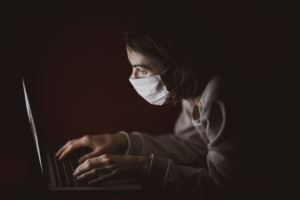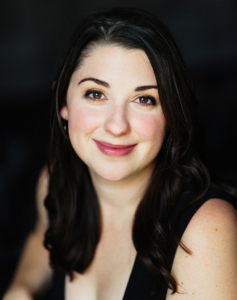Living Through History

Credit: Engin Akyurt on Unsplash
There’s a certain weight a person holds when they’ve been part of a monumental moment in history. That weight can influence the way they act, how they cope, and, ultimately, who they become.
I’ve seen this weight on people like my grandfather, who flew in a total of 91 combat missions during World War II. He got a distant look in his eyes when he talked about his time overseas. He didn’t seem to mind sharing stories every once in a while. When he spoke, I could see his mind transport to a different time and place. He had to insert himself into another world entirely to recall the details.
My dad had a similar weight, though he rarely talked about it. He was drafted into the Vietnam War when he was 19 years old. Overseas, he caught malaria and was close to death. He was there almost a full year before he could come home. I tried not to ask him about Vietnam. He didn’t seem eager to go back in time and sort out the details.
Both my grandfather and my dad have passed away, but from their stories, it’s clear they had a perspective, a heaviness which guided them forward. They were part of a past we can only read about in history books today. No matter how many news stories, propaganda posters, or written down eyewitness accounts we have, we will never be able to truly understand what those two people — and millions of others — experienced during those turbulent times.
We refer to my grandfather’s age group as the Greatest Generation. My dad was a baby boomer. The struggles both these groups went through and the wars they fought feel so distant in 2020. My generation — those darn millennials — we’re often seen as soft. The stereotype is that we’ve had everything handed to us, and we don’t understand what real struggle is. But in the last several weeks, I think we’ve seen our biggest challenge yet. We’re living through our own war with the coronavirus, one of the worst pandemics in modern history.
This scary time may not involve fighter jets or landmines. We can’t fight it with guns or missiles, and the only thing we’ve been drafted to do is stay home and social distance. Still, coronavirus is a tragedy the whole world is facing. The UN Secretary General António Guterres warned earlier this month that this pandemic will be the biggest challenge the world has faced since World War II.
As death count estimates rise and the timeline for social distancing stretches longer and longer, I’m consumed with anxiety for the future. All my plans have dissipated; I feel even further away from my family, most of whom live in other states, and it’s becoming less likely my fiancé and I will be able to tie the knot in front of our loved ones this August. Considering the life and death challenges many are coping with right now, I’m lucky. I know that. Still, I wonder what impact this pandemic will have on the world as a whole. I wonder what impact this pandemic will have on me as an individual.

Credit: Jasmin Sessler on Unsplash
I can see myself as a grandmother, decades down the line. A graying woman who is constantly telling her grandkids to wash their hands. I’ll watch them as they do it, making sure they scrub vigorously for at least 20 seconds.
“Sing Happy Birthday twice,” I’ll say. They’ll roll their eyes but acquiesce to my demands.
“Why is grandma so obsessed with me washing my hands all of the time?” They will ask their mom or dad, clearly annoyed by my incessant nagging.
“She lived through the pandemic of 2020,” they’ll tell my grandchildren. “There was a horrible virus that spread to hundreds of thousands of people.” They’ll go on to explain how we had to wash our hands in an attempt not to catch the virus, how we spent months isolated in our homes to stop the spread. They’ll speak of it as a far-off, distant time, like many of us refer to the Vietnam War or World War II today.
As my grandkids grow, they’ll learn about the pandemic in history class. They may even tell their teacher how their grandmother pesters them about washing their hands.
They’ll learn about the pandemic of 2020, but they’ll never have the perspective of someone who went through it. The history books, the news stories, even the most popular memes will only be able to tell so much about the struggle we’re all facing right now. But they must understand it as best they can in case history repeats itself someday.
History will tell my grandchildren about the medical shortages, the death count climbing slowly at first, then rapidly, about the stay at home orders, the closed businesses, the crashing economy. It will tell of President Trump and how he handled the situation. But it won’t explain the painful uncertainty we all felt, the panic as we scrubbed our groceries, disinfected our mail.
History will state that there was tragedy, but it won’t make us feel the pain. It won’t be able to convey how the mother in Connecticut cried when her six-week-old newborn died from COVID-19.
The history books will refer to how we adapted, but it won’t be able to illustrate the acts of kindness, courage and support we’ve given each other. It won’t be able to get in the minds of the nurses who held the hands of dying patients as they said goodbye to their loved ones via FaceTime.
History will be able to show that Zoom Video Communications Inc’s stock went up in March 2020, but it won’t be able to depict the laughter and tears shared over virtual happy hours, brunches, and game nights.
The history books may state that this was the time an author or musician got their start, stuck at home working on their craft. But it won’t go into detail about how all of us – from big time celebrities to young kids in homeschool – shared our creations with one another, how we needed that art, how we craved it just to feel alive.
These are the stories we must take with us, the ones we must remember. Forgetting them would be an easy thing to do. When this all ends, I will want to suppress the memories and quash all of the anxiety I had around it. As time passes, forgetting will get easier. But neglecting our memories would do a disservice to us, as well as the people who will come after us. If we don’t learn from our mistakes and grow from our hardships, we will find ourselves in the same place again. It’s our job to remember, it’s our job to carry this weight.
My grandkids will be able to tell from their textbooks that 2020 was a monumental time in history. But I’m the one who will tell them how we all screamed from porches and patios of our houses every evening to show support for the essential workers. I’ll be able to tell them how the COVID-19 pandemic reminded me of the good in people. And I’m the one who will be able to tell them again and again to scrub their hands with soap for at least 20 seconds. Because I will remember the consequences of doing otherwise.
Barbara Platts is an award-winning columnist and the online editor for Sweet Jane Magazine. She’s worked in many forms of journalism, from public radio to newspaper, and is thrilled to be pursuing her MFA for nonfiction writing at Antioch University. She works for Lunch Ticket on the interview, blog, and creative nonfiction teams. She lives in Los Angeles with her fiancé and two adorable pups. Follow her on Twitter and Instagram @BarbaraPlatts.





